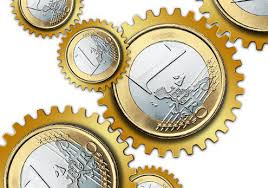1- Will Greece be “seen out” of the euro during the year, or is a compromise still possible in the euro framework?
A workable compromise is certainly possible and there is no need for Greece to exit the euro. Only Greece needs a government that is genuinely committed to negotiating and drawing lines in the sand thus demanding sensible changes to the rationale of the agreement between Greece, Berlin, Brussels and Frankfurt.
2- Will Euro area fall into stag-deflation? Will Germany accept a change of policies’ course?
The Euro Area is stagnating already, and doing so quite badly. But this is insufficient to change Germany’s stance. Only a doubling of German unemployment will do this or, more likely, one (or more) government from the Periphery that are prepared to veto the German position in the EU Council.
3- Will the ECB will go for a full QE?
No. Even if they start buying government bonds, they will do it in a quantity and manner that does not help much.
4- Sovereign Bond Yields will continue to go down through new historical lows, or is a reversal probable?
The low yields reflect a combination of deflationary expectations and the expectation that Europe will continue quietly to “wither”. If /when either of these expectations change, yields will shoot up.
5- Will Russia enter full recession and the euro go above 80 roubles?
Russia is in full recession. As for the rubble’s ‘equilibrium’ rate, only fools make predictions.
6- Can Geopolitical risks go up?
They always do in the wake of a long term deflationary crisis. Just ask yourself: Would Mr Putin have behaved the way he did if Europe had a coherent strategy against its crisis?
7- Will Brent price go down below 60 dollars, or is a reversal probable?
The macroeconomic outlook supports the prediction of low oil prices for a while. But given the political nature of many of the relevant decisions (e.g. What will Saudi Arabia do? Will Iran be rehabilitated?), price forecasts are bound to be inaccurate.
8- Will the FED and the Bank of England delay significantly first move to higher interest rates?
It does not matter much. They will be very cautious, ready to drop them again at the first sign of a downturn.
9- In the euro area which country is the weakest link?
Italy – in the sense that it manages to have a very healthy primary surplus (and a healthy current account) but still its debt to GDP ratio is rising unsustainable.
10- Guesses for grey or black swans?
By definition, ‘swans’ are un-guessable. Except to say that the source of the next Euro Area shock will be political (under the strain of deflationary dynamics).















